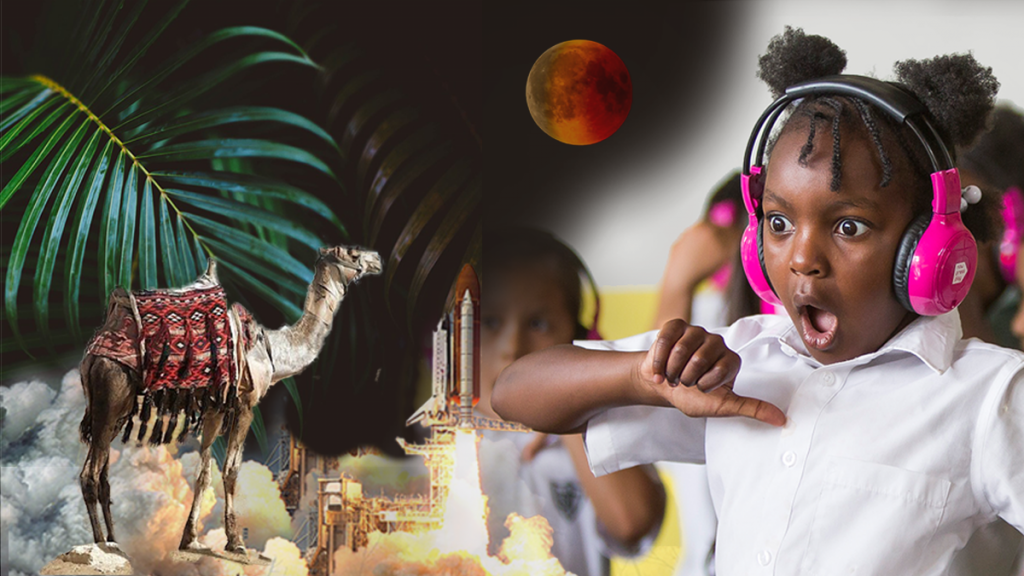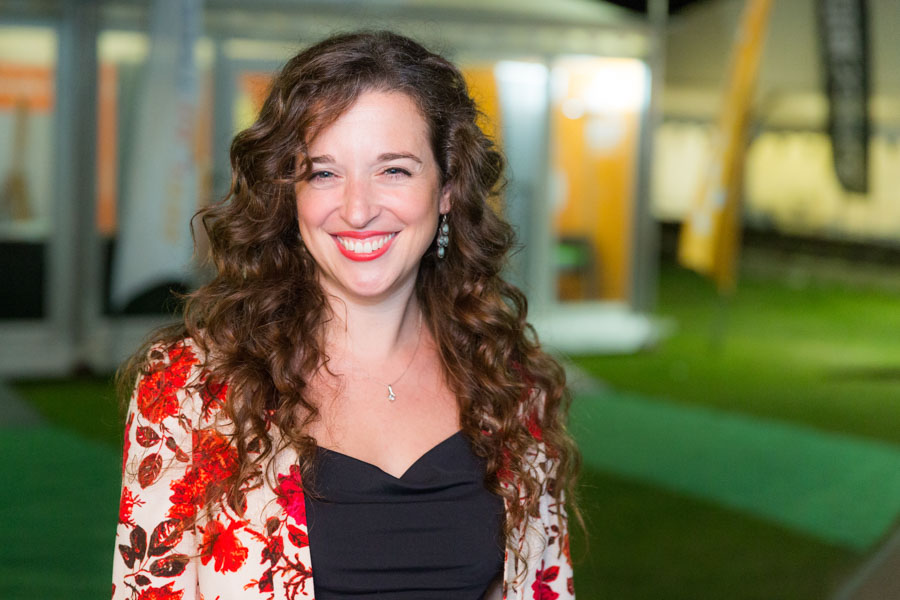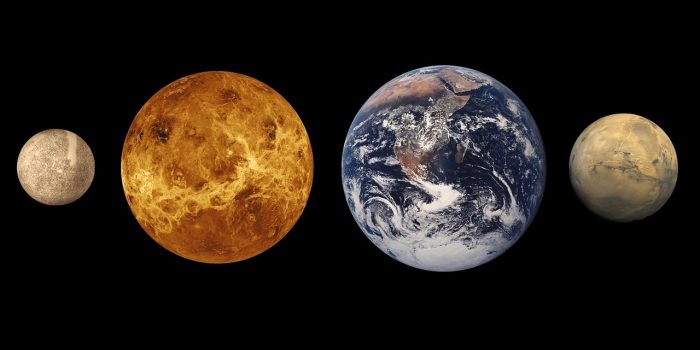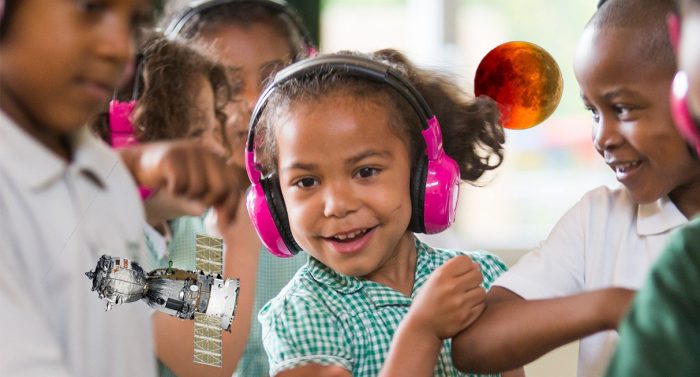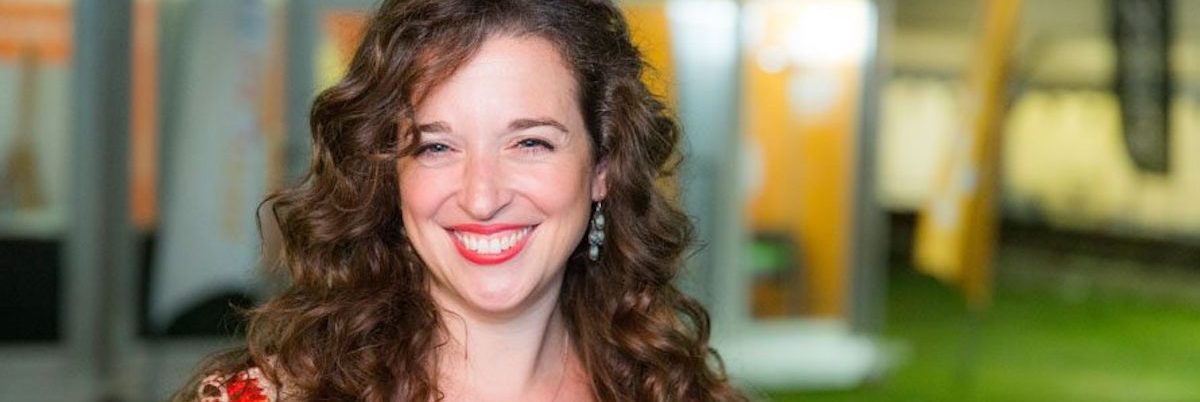
New studies have shown a decrease in the number of girls taking science subjects such as Physics to higher education level. Many are pinning this on a strong level of sexism towards the subject from a young age. Teachers are now faced with the challenge of making science subjects appealing to both boys and girls from the early years in order to inspire the scientists of tomorrow.
We were absolutely thrilled to chat to Dr Emily Grossman, science communicator, broadcaster and educator. We asked her why she wanted to become a scientist, what her most exciting fact was about space and how primary school teachers should approach science lessons. Read her answers here…
Why did you want to become a scientist?
From as early as I can remember, I always wanted to understand things. I loved solving problems and working stuff out; I even used to ask my parents for puzzle books for Christmas! My favourite word was “Why?” – I used to drive my teachers mad – and I had a fascination with the world around me, wanting to know how things worked and why things happened. When we were six, my best friend Lucy and I used to sit for hours and have what we called “ponders” about the world – Why does rain fall in drops? Why do flowers smell yummy? Why is the sea coloured blue when water isn’t? I thought it was amazing that there were proper real answers to these sorts of questions and actual reasons that things happened, and it made me very happy when I could figure out the answers to stuff. I liked it when things made sense.
I didn’t realise until I was much older that this made me a scientist.
Who is your biggest scientific idol?
My dad. My dad is a hormone doctor and a scientist, and when I was about six he used to take me on long drives and we’d have what he called “Theory Afternoons”. He’d pick an exciting scientific theory and he’d explain it all to me. My favourite memories were learning about how we all evolved from monkeys, how if we travelled really fast time would slow down, and how he was colour-blind but I wasn’t — but my children might be! He showed me that science is not only interesting and exciting, but also hugely important to life. And that it’s really fun!
What is your favourite fascinating fact about space?
On Venus a day is longer than a year! This is because Venus spins on its own axis so slowly that it takes longer for it to orbit around the sun than it does for it to make one full turn on its own axis! I love this fact because it’s so mind-boggling and makes us think about how we define time. We define a year as the time taken for us to go all the way round the sun – 365 days for Earth, 225 days for Venus – whereas we define a day as the time taken for us to turn once on our own axis — 24 hours for Earth but a whopping 243 days for Venus!
Why is it so important for young people to learn more about space?
Help them to see that science is fun and exciting and truly relevant to their lives. Show them that science is for everyone, not just for boys. Studies have shown that a lot of young girls feel they’re “not smart enough” for science, “too creative”, or that it’s just “not for people like me”. Support and encourage them to believe in their abilities – even if the boys in their class may appear more confident (which I often find to be the case), help the girls not to feel intimidated or put off — often boys learn in a different manner to girls in the classroom, and can come across as ‘better’ at science. When it comes to results, this doesn’t usually match up. In my experience, girls often need to be more certain than boys that they are right before putting their hand up and answering a question — particularly in a mixed-sex environment. Encourage them to speak up and share their ideas.
Science is for girls…
Explain to girls that science is not just about logic and analysis, as per the traditional stereotype, but it’s also about creativity, imagination, being a good listener, communication, and working well with others. Try to show them as many female role-models as possible, ideally real-life female scientists they can meet and talk to, or ones talking about science on TV. Make sure that they’re aware of the enormous range of careers that are available for people who study science, not just the traditional roles.
Above all, make sure they know that really, when it comes to it, the only thing they really need in order to make them a good scientist is to be interested and excited about the world around them and how things work. There are many different “ways” of being a scientist and many different “types” of people who make excellent scientists.
The “People like me” science resource pack (part of the Wise Campaign) is great for teaching girls that their unique qualities can make for great scientists.
Emily Grossman is available for school talks, mentoring and tutoring. More details can be found on her website: www.emilygrossman.co.uk
